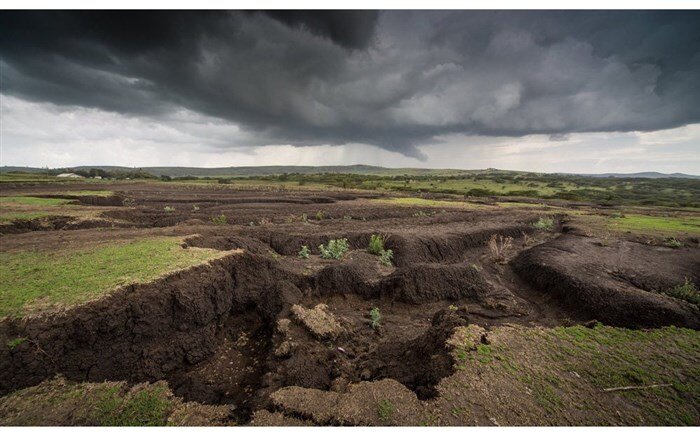Over 16 tons of soil per hectare erodes annually

TEHRAN – The annual soil erosion rate in Iran equals 16.4 tons per hectare, the director of watershed management and soil protection office of Natural Resources and Watershed Management Organization, Hooshang Jazi, has announced.
He made the remarks in a training workshop and project on watershed management problems of 10 provinces of the country held on Sunday in Urmia, West Azarbaijan province.
Soil is a valuable material even more important than water and it takes 700 years to make one centimeter of it, Jazi highlighted, ISNA reported on Monday.
Stating that 125 million hectares of the country’s lands are subject to water erosion, he pointed out that protecting the soil is vital, and to preserve it, the cooperation of all organizations and the participation of the people is highly required.
Hassan Vahid, the deputy head of the Natural Resources and Watershed Management Organization, also for his part announced that watershed management plans conducted on 50,000 hectares of natural resources, which will increase to about 120 million hectares.
He went on to note that the watershed plan has been implemented in 30 million hectares of the country's natural resources areas, and the remaining areas will be completed during the seventh and eighth development plans with the support of related organizations and people's participation.
The watershed plans play an important role in controlling floods and saving water resources, he said, adding that people’s participation in the protection of natural resources will lead to the reduction of environmental hazards such as floods and soil erosion.
Annual loss of $56 billion
According to the statistics, Iran loses 2 billion tons of soil annually, according to the 2018 report of the United Nations Development Program, the total amount of global soil erosion is 24 billion tons, so one-twelfth of all global soil erosion occurs in Iran.
This is while, Iran has about one percent of the world's land area, which means that its erosion rate is eight times higher than the global average, so Iran is suffering from severe degradation and soil erosion.
In Iran, due to the severe erosion, it takes an estimated 800 years to produce a centimeter of soil, so the attention of the people and the government should be on average twice the global average.
Each ton of soil is valued at $28 in terms of metal ores, so the loss of two billion tons of soil annually means an annual loss of $56 billion, which is more than revenues from the sale of oil and agricultural products, gardens, livestock, poultry, and fisheries.
Home to over 25% of biodiversity
This natural resource hosts over 25 percent of biodiversity and about 90 percent of living organisms spend part of their life cycle in the soil; it also plays an important role in supporting animal biodiversity above ground, including wildlife and domesticated livestock.
The most widely recognized function of the soil is its support for food production. It is estimated that 95% of our food is directly or indirectly produced on the soil. Healthy soil supplies the essential nutrients, water, and oxygen that our food-producing plants need to grow and flourish.
Soil is also crucial for ensuring the continued growth and maintenance of natural and managed vegetation, including diverse forests and grasslands and the huge breadth of species and varieties that are cultivated or managed for their food, feed, fuel, fiber, and medicinal products.
FB/MG
